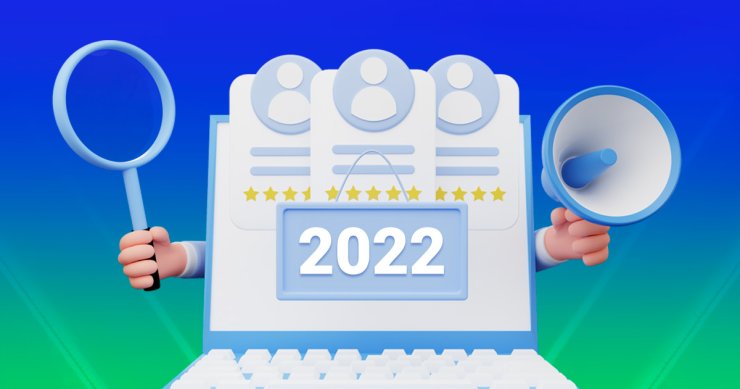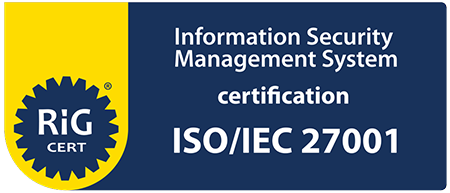What can we expect from 2022 in the field of HR management? The pandemic is still ongoing, but despite the stress and challenges for the business over the past year, HR professionals, and companies, have undergone a tangible transformation in a positive direction.
In 2021, businesses have learned to be more flexible and empower their employees to be more autonomous and do their jobs in new ways. Companies have begun to put people in the center of the processes and the work models they implement, focusing on their empathy and well-being. As a result, almost all organizations went through digital transformation to a different extent and realized that they could do many things faster and more efficiently than before.
The HR profession has also changed, and businesses have really understood the importance of the HR function and the role of the HR manager in a company, not just in times of crisis but at any point in the company's life. But what is about to happen with the HR function in 2022? In this article, we share the top 5 out of 10 trends that we believe will shape the understanding of HR management in the upcoming year.
1. Hybrid working model will evolve
Hybrid work has become a well-accepted business practice by companies. Several surveys from the last 2 years show that people like this new situation. More than 50% of employees are willing to give up 5% of their salary in exchange for the option to work from home.*
The old notion that working at home is synonymous with goofing off is almost gone. We can confidently say that hybrid working is now seen as usual.
The big trend for 2022 that will affect the hybrid working model will be the increased usage of efficient digital tools and the emergence of Metaverse. In his article "What Is The Metaverse?" Josh Bersin shares that it is not something to be afraid of, quite the opposite. The new digital experiences it offers will further transform the definition of hybrid work, as well as onboarding, training, collaboration, meetings, and, of course, entertainment and commerce.
More and more companies will invest and experiment with AI-based solutions in 2022. As a result, there will be increased usage of digital tools for talent management, for measuring different metrics and dynamics in teams, for measuring attitudes, values and the pulse of organizations.
2. Business transformations and HR
When it comes to the role of HR specialists in the change process in a company, the HR unit is often neglected and involved at a much later stage, even on topics directly related to people management. However, this limited involvement is inappropriate and could lead to unfortunate consequences for the entire organization because HR experts have a large set of different approaches that could add tremendous value to these projects.
They can support the change process through their skills in organizational design, development and transformation, their expertise in building culture, their capability to design collaboration processes, and the use of digital solutions to accompany the change process, providing the necessary insights into employee attitudes, concerns and expectations regarding the change.
As transformations have rapidly accelerated lately, we will increasingly see on the one hand organizations assigning a pivotal role to HRs and on the other HR professionals willing to take ownership of these change processes and measure their impact and progress.
Whether it's helping to build an internal talent marketplace, ensuring better collaboration in the new hybrid era of work, aligning business goals with an organization's corporate culture and values, or driving data-driven decision making, HR experts will need to manage many of these critical processes themselves because business and reality will demand it.
3. Prepared for different future scenarios
The future of work is becoming increasingly flexible and complex. The world is too unpredictable to be prepared for only one possible future.
Employees will increasingly demand greater flexibility regarding where, when and how they work. But, on the other hand, companies must learn to be more agile and resilient. The same applies to HR.
By relying on a data-driven workforce and scenario planning, companies will be able to create more adaptive strategies that develop as the business environment evolves. This won't happen unless HR and its own strategy become adaptive and flexible.
And unless companies are prepared for various scenarios and are agile enough to react lightning fast to change, they will not last long enough to survive in a rapidly evolving reality. That's why every HR expert needs to keep their fingers on the pulse of their organization and the world outside and be prepared for the various surprises the future may present.
4. HR tech for good
The list of companies that "unintentionally" misuse technology in their talent management or operations grows every year.
Whether it's the widely known case of Amazon's biased hiring algorithm or the more recent example of Uber's facial recognition app feature allegedly discriminating against drivers from racial or racial-ethnic minorities, we are reminded that whenever we use technology, we have a responsibility to use it for good.
Many of these cases have raised awareness and urgency to seek solutions on this topic. Of all the departments in a company, the HR department should be the one to set an example and be the guarantor of ethical technology use. And as more and more HR departments start to use technology solutions in their work processes, they need to be vigilant and make sure that artificial intelligence and algorithms achieve the intended goal instead of shooting past it.
HR professionals will therefore need to become more familiar with new HR technologies and will have to quickly upgrade their digital skills to be able to understand the basics of their algorithms. This will enable them to ask vendors the right questions when selecting the right technology for their organizations.
Currently, only 41%** of HR professionals have these competencies. The rest need upskilling to use technology as a tool for positive change.
5. Data literacy
Increasingly, businesses will need HR professionals who can effectively use the data from the various tools for employee analysis across the organization.
Unfortunately, the level of general data literacy among HRs globally is quite low. Therefore, HR experts need support to successfully interpret the data received from the different digital tools to draw conclusions efficiently and make better decisions based on data.
HR managers will need access to a dashboard with relevant real-time data that will enable them to provide better and practical advice to various stakeholders in their company. The transformation of analytical data into an argument for concrete actions and ensuring its practical use, will be the great added value HR professionals will bring.
However, many of them will need to improve and build on their data literacy capabilities to do this. Currently, only 4 out of 10 experts can read, apply, create and present data adequately to influence decision-making.
To be continued...
- “Work remote after COVID? Nearly 50% of US workers would take a pay cut for it, survey says,” Terry Collins/usatoday.com, November 2021. ** AIHR Academy research




